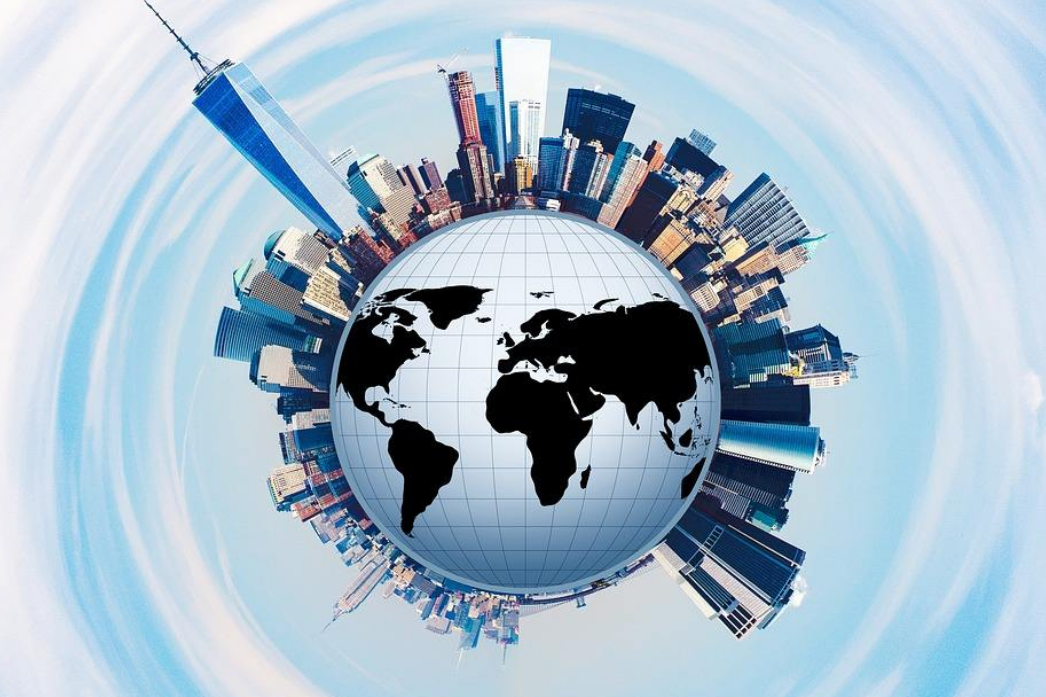
Globalization and the Economy
全球化与经济代写 Additionally, these underdeveloped countries' resources also result in their manipulation by developed countries to tap natural
The development of the economy relies majorly on external environmental factors. These factors mainly constitute macro-economic factors that directly influence the growth of a state's economy. Globalization and Nation-state are the two critical factors that influence the development of a nation's economy. Globalization majorly involves the architectural design responsible for the advancement of capitalistic ideologies. A country-state conversely encompasses the political environment that influences a nation's economic state's development and improvements. Economic growth is affected by nation-wide external environmental factors.
To understand the economic elasticity to external environmental factors, it is essential to define globalization and nation-state and the aspects that trigger economic shifts. 全球化与经济代写

According to Olga (2017, p. 2), globalization is a significant influence on the financial state since it involves coalescing of various international market forces that affect a nation's economy. The researcher states that global markets, for instance, influence export and import business globally; therefore, interruption of international trade within a country would significantly affect a nation's economic state. However, the researcher states that the conventional perception fails to appeal to the current economic design because currently, specialization of processes and development of multinational corporations shift production paradigms. It, therefore, prepares the world as a global stage for a defined economic system.
According to the researcher, the current global financial system is structured on complex functionalities such as supply chain routes, infrastructural settings that support the transport of goods and services. The researcher also states that global financial institutions play a critical role in shaping globalization and, ultimately, the world economy. 全球化与经济代写
While globalization focuses on external environmental influences, the development of a country also depends on the political environment. Rudel et al. (2011, p221) posit that the type of political environment influences the nature of investment within a country that would affect the economic state. The researchers state that state sovereignty plays a significant role in the development of a nation's economy. Corporate laws, for instance, may either encourage or discourage foreign investments depending on their elasticity to attract and sustain investments. In their research, the researchers employ sociological theories to explain the importance of the political environment in the economy's growth. Some of the approaches discussed include the impact theories, ecological exchange theories, among other ideas. In general, these theories are mainly used to deduce public policies and administrative strategies to improve the economic state (Jotia 2011, p. 243).
Sociological Theories Affecting the economy
As earlier discussed by Rudel et al. (2011, p. 221), sociological theories can explain the growth and development of an economy. Some of these theories include the idea of ecologically unequal exchange (Rudel et al. 2011, p. 221), impact theories, and other production theories. According to Givens et al. (2019 p. 2), the global economic architecture directly impacts the distribution of environmental harms caused by production processes.
This theory focuses on developed and developing countries and how the international market forces affect waste generation in these two countries. According to the researchers, the economic states' variance between countries causes unequal distribution of environmentally destructive forces. Also, access to resources triggers causes this disproportionality in the distribution of environmental dangers. Their research indicates that the developed countries have complete access to help due to their robust economic state instead of developing countries. The researchers also denote that due to the underdeveloped nations' financial position, developed nations often use underdeveloped nations as waste sites.
Additionally, these underdeveloped countries' resources also result in their manipulation by developed countries to tap natural resources from these countries. The existential threat to underdeveloped countries, according to this theory, is the environmental impacts. Firstly, the over-extraction of natural resources from these countries results in environmental degradation. The dumping of waste materials by developed countries in underdeveloped countries also poses colossal ecological impacts. It, therefore, implies that weak state sovereignty opens a nation to the adverse effects of globalization. Underdeveloped countries with fragile independence allow developed to manipulate their resources for little economic gain and substantial environmental implications, thus triggering economic imbalance. 全球化与经济代写
The treadmill of production theory also explains the extent of a nation-state controlling its economy. According to Curran (2017, p. 28), the treadmill of production theory posits that countries are in a constant battle to increase their productivity by exploiting natural resources.
The researcher, however, states that the incline of states to increased production poses colossal environmental impacts due to overexploitation of natural resources in the absence of sustainable production programs. The researcher says that the political and economic conditions trigger this ideology of continuous production at the expense of the environment. At the end of the Second World War, the researcher states that the Global North countries shifted their focus to increase production in a new front of ideological and economic war (Curran 2017, p. 35).
However, the state of production of a country is dependent on its global financial position and internal laws governing protecting the resources within the country. Developed countries, therefore, largely influence the international pricing for finished commodities as compared to underdeveloped countries. Thus, underdeveloped countries loosen their laws, mainly on global industrialization from developed countries, to boost their economy. Consequently, with the drive for the global dominance world economy for developed countries, overuse of natural resources is inevitable.
The internal infrastructure of a nation also plays a significant role in aiding economic growth. 全球化与经济代写
According to Farahani (2017, p.1). The urban growth machine theory states that multisectoral development within a country's regions triggers economic development. According to the researcher, economic development within a country is a consequence of intertwined multisectoral efforts. This theory, therefore, shifts focus to state policies that lead to the development of basic economic, infrastructural facilities. The approach concentrates broadly on educational institutions, leadership architecture, transport, and communication facilities, among other institutions. Farahani (2017, p. 1) states that proper educational facilities increase human capital in a region.
Consequently, educational institutions' growth within a region would attract investments (foreign and local), hence positively impacting the economy. Additionally, the researcher states that the leadership structure also plays a critical role in developing an economy. Proper leadership leads to the formulation o policies that would favor sustainable economic growth. On the other hand, bad leadership may cause political upheavals that may scare away investors, leading to economic underdevelopment. Also, state policies on transport and communication infrastructure may affect the economy. 全球化与经济代写
Proper transport and communication facilities facilitate a more effortless flow of goods and services, increasing a region's economic potency. The researcher also states that labor protection is a vital tool for economic development. According to the researcher, fair labor laws would attract skilled professionals both locally and internationally, hence positively impacting a region's economy. These aspects, however, could only be operable if the state has solid legislative capabilities that shield it from economic externalities and the impacts of globalization.
In conclusion, the nation-state plays a critical role in economic development. According to the research, weak states have less protection from market externalities and globalization impacts than economically stable states. Stronger economies, therefore, signify stronger state sovereignty hence elevating the global economic position of a country. It is, therefore, necessary for countries to develop foundational solid economic infrastructures and policies to prevent the effects of externalities that would lead to positive economic development.


 更多代写:
更多代写:

发表回复
要发表评论,您必须先登录。